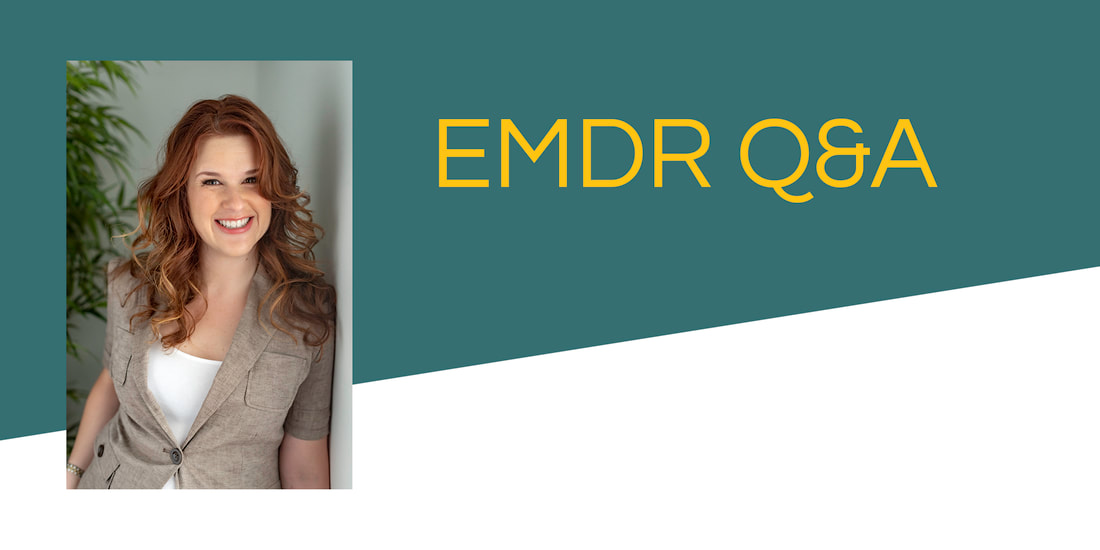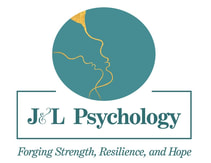|
By: Rachel Goldman, PhD
Self-compassion is a crucial element in surviving (and eventually thriving in) parenthood. Loosely defined, it is the act of giving yourself patience, kindness, empathy, love, and understanding as you move through the intensity and complexities of your “new normal.” Translating self-compassion into reality, however, often is fraught and filled with missteps: “should have” thoughts, “wish I were like…” self-comparisons, second-guessing, and self-judgment. Why is it so difficult for parents to give themselves grace? Perhaps it’s because parenthood puts your before life in a washing machine – swooshing everything around, soaking your prior self, and spinning things on high until you don’t know which way is up. You are jolted back into reality, except, now, everything has changed. For many, your before ways of coping kick into gear – pushing through challenges, casting aside feelings that don’t feel useful, relying on logic rather than intuition, and setting unrealistic expectations. You charge into the unknowns of parenthood with a steadfast internal image of how you want to be. The epitome, in your head, of what it means to be a good parent. By Ilana Schulder, PsyD
This 60-minute webinar is designed to support those who care for children and are deeply involved in their everyday lives. It will help you identify warning signs in children's mental health, learn ways to address crises as they unfold, and approach difficult topics important to young people with greater confidence. This webinar will cover:
By Lili Romann, J&L contributor
We are getting to the point where phone “addictions” are normalized: Dependence on our smartphones is rampant across generations. While there is controversy regarding how severe or detrimental phone use habits are to our physical and psychological well being, there is no escaping the reality that our phones are integral to our everyday lives – and they are not going away any time soon. Given that inevitability, it is critical that we identify mindful and healthy ways to manage our relationships with our devices. If you read our blog post on toxic positivity, or are one of the many doomscrollers and news junkies among us, you are likely aware of how using the phone to cope or numb our senses can cause us to lose track of time, relationships, and the world around us. Additionally, the near constant exposure to disturbing, and at times even traumatic, content can contribute to feeling overwhelmed and weighed down. At J&L Psychology Group, we often approach our treatment services with a concentration on trauma to help individuals develop healthier coping strategies. Limited-Time Availability of Short-Term or Intensive EMDR Sessions to Augment Existing Therapy7/17/2023
Jennifer Newman, PhD Dr. Jennifer Newman has limited availability this summer to serve clients who would benefit from short-term or intensive EMDR sessions. EMDR may offer an important add-on component to your therapeutic journey. It is a form of processing that can quickly uncover and connect many different experiences that link to trauma, anxiety, and stress that is being held in your body or mind. Sessions with Dr. Newman should be considered an augmentation to existing therapy, designed to unlock aspects of trauma that may have remained hidden during your current course of treatment. She will closely collaborate with your primary therapist so you can benefit from processing what you’ve learned through EMDR in regular therapy sessions. WHEN: Dr. Newman has limited-time availability during August 2023. HOW: Short-term (typically 2-3 45-minute sessions), or 3-4 hour intensive sessions. WHO: Patients who are currently in trauma treatment with a trusted therapist who can benefit from limited, add-on EMDR treatment Call (646) 609-6323 or email info@jandlpsychology now to discuss if EMDR could help, and schedule a session before Dr. Newman's schedule fills again. WHAT IS EMDR?: Eye Movement Desensitization and Reprocessing (EMDR) is an approach to therapy that involves recalling distressing thoughts, images, feelings and/or body sensations while simultaneously focusing on an external stimulus. Often the external stimuli are a series of side-to-side eye movements or hand-tapping. This approach assists with processing memories by allowing patients to focus both on the associations related to these recollections and the bilateral stimulation, commonly in the form of repeated eye movements. EMDR therapy does not require talking about distressing details to process traumatic events. EMDR has evidence for use in treatment of trauma, depression, anxiety, and other mental health conditions and can be used in adults and children. Watch the video below to hear Dr. Newman talk about the process. WHEN: Thursday July 6th, 6:00pm-7:00pm
WHERE: Webinar via Zoom* (link will be to provided to participants upon enrollment) COST: $45 (sliding scale options available) WHO: Parents, caregivers, educators, and others working with children This 60-minute webinar is designed to support those who care for children and are deeply involved in their everyday lives. It will help you identify warning signs in children's mental health, learn ways to address crises as they unfold, and approach difficult topics important to young people with greater confidence. This webinar will cover:
Plus tips for preparing for summer transitions! REGISTER HERE *please note, the webinar will be recorded and use of identifying information is optional. Mondays, 6:30pm - 7:45pm*
Virtual via Zoom Join us for a 12-week group therapy program designed to connect you with other trauma survivors, teach you skills to manage difficult emotions, and introduce new strategies to improve the health of your relationships. The Group will be co-led by Dr. Emily Brackman and Dr. Ilana Schulder. To learn more and complete a complimentary group consultation call, please reach out to us at [email protected] *Time subject to change depending on participant availability and start date. Join us for a 90-minute webinar to learn more about the science behind trauma and how trauma impacts survivors.
Event Details Thursday January 26th, 2023 6:30-8pm EDT Remote via Zoom This webinar has been developed for the general public, including trauma survivors and their family members/loved ones, as well as professionals who are interested in understanding the basic concepts of living with and healing from PTSD and complex trauma. The presentation will provide an overview of core concepts related totrauma, including:
Participants will have a chance to engage in self-reflective and experiential exercises throughout the presentation. Out with minimizing, in with acknowledging
By Lili Romann We’ve all had a lot to deal with recently. Between the pandemic, a war-torn world, a democracy at odds with itself, a nearing recession and more, there are lots of reasons to feel scared and stressed. Aside from these large-scale issues, you may be working a hybrid schedule and having to find a balance between your work hours and picking up your kids. Or maybe your course load at school is kicking your butt and you are worried because your family is facing hardships. The list seems to be endless. The key to navigating a stressful, or often tumultuous sequence of events – this applies to everybody – is how you choose to confront your stress (Centers for Disease Control and Prevention, 2021). Let’s introduce the topic of “toxic positivity,” an approach to emotion management that involves dismissing negative emotions and overgeneralizing positive ones. Toxic positivity is a belief that, no matter what, you should keep a positive mindset (Goodman, 2022). People following this concept appear positive when they are struggling. We are excited to meet prospective patients and referring providers in this free virtual meet-and-greet where Beth will provide more information about EMDR (Eye Movement Desensitization and Reprocessing) and answer questions about the EMDR services available at J&L.
Event Details: Monday, June 13th, 2022 12 - 1:00pm Virtual Webinar via Zoom In this 1-hour virtual discussion, you will learn:
EMDR is an approach to therapy that assists with processing traumatic memories without needing to talk directly about distressing details of past events. EMDR has evidence for use in treatment of trauma, depression, anxiety, and other mental health conditions and can be used in adults and children. Check out the brief introduction to EMDR on our Treatment page. Whether you have been in trauma therapy before, are currently seeing another provider, or have never had any therapy in the past, EMDR may be an important component of your healing journey. J&L is now offering:
This free 1-hour event is the first in an upcoming series of J&L Midday Moments - one hour discussion-based meetings and informational sessions intended to create a collaborative and supportive environment in which to both learn about and discuss various aspects of treatment offered at J&L Psychology. These events are open to patients and providers. Each Midday Moment will offer ample time for questions and discussion, and all questions will be submitted anonymously through the virtual chat function. REGISTER HERE FOR THIS FREE EVENT. Meet our EMDR provider: Beth Phillips, LCSW Download the event flyer here. *PLEASE NOTE: At this time J&L Psychology Group is not accepting applications for postdoctoral fellowship positions*
J&L Psychology Group offers a full-time, one- or two-year postdoctoral fellowship in summer/fall. The position requires 20-25 clinical hours (1:1 patient care, group) in addition to attending a weekly clinical meeting, projects meeting, and individual supervision. Administration time and project development hours also are included in the 40-hour work week. We are looking for candidates interested in working with children, adults, families, and/or couples in a close-knit, collaborative, therapeutic group practice. Our offices are located in midtown Manhattan close to public transportation. We offer in-person and virtual services, allowing our clinicians to tailor a hybrid schedule according to their and their clients’ preferences. The postdoctoral fellowship position at J&L Psychology Group is designed for candidates who have successfully obtained their doctoral degree in clinical or counseling psychology and are interested in accruing licensure hours in a supportive private practice setting. J&L Psychology Group specializes in the treatment of individuals across the lifespan (children, teens, adults) who present with a diverse set of issues, including complex trauma, anxiety, depression, adjustment/transition issues, etc. We provide individual, couples, and family-based therapies. We are passionate about developing authentic relationships with our patients and tailoring treatment plans to fit each person. Our team has extensive training and experience in many treatment models, including Cognitive Behavioral Therapy (CBT), Emotionally Focused Therapy (EFT), and Psychodynamic Therapy. |
Categories
All
Archives
March 2024
|
Home The Practice FAQs Practice News & Blog Stress & Anxiety Depression Trauma Couples Therapy Child Therapy, Parenting Coaching & Family Therapy Self Development Treatment For Professionals Contact
J&L Psychology Group, PLLC302 5th Avenue, 11th Floor, #1112, New York, NY, 10001
(646) 609-6323 If this is a mental health emergency, please call 911, go to your nearest emergency room, or call or text the Suicide and Crisis Lifeline at 988. Stay up to date: |
Follow us on Facebook and Instagram:
© Copyright J&L Psychology Group 2021
|











 RSS Feed
RSS Feed
